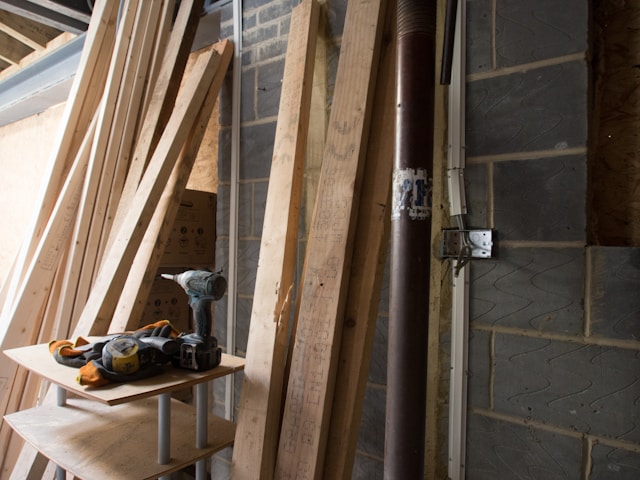In the case of a renovation project, is it better to hire the trades yourself or get a builder to manage the project for you? Here are the pros and cons.
In this article we cover:
- Direct labour versus hiring a builder: pros and cons
- What to consider
- How much more does it cost to hire a builder
Hiring the trades on your renovation project
If you are experienced, skilled and up for the challenge, there are many advantages of acting as project manager:
- Cost savings: Taking on the project management role yourself can shave 10 to 20 per cent off the overall cost of your extension or renovation.
- Team selection: You’ll have the freedom to handpick your own tradespeople, rather than working with a team chosen by a contractor — which can make for a more collaborative and comfortable build.
- Fewer unwanted surprises: With you keeping an eye on day-to-day progress, there’s less risk of decisions being made without your input — and fewer surprises when you walk through the door.
- More control: From tile choices to lighting layouts, being closely involved means you’re more likely to catch small issues before they become costly fixes.
Hiring a builder for your renovation project
If managing the project yourself feels overwhelming, bringing in a main contractor is the best option. Ideally, you’ll choose someone with solid recommendations and someone you have a good rapport with.
A good contractor will have their own team or a network of trusted subcontractors they regularly rely on. They’ll coordinate the build, ensure the right people are on-site at the right time and oversee the quality of the work throughout.
Should issues arise — especially defects that only become apparent down the line — you’ll have a clear point of contact to turn to for resolution.
It’s also important not to underestimate the responsibilities that come with running a building site. Health and safety obligations are significant, and everyone from your mortgage provider to the local authorities will expect you to manage things professionally.
Main contractors bring valuable knowledge and experience to the table. While it’s tempting to believe you can pick things up as you go, the learning curve is steep. Mistakes are almost inevitable, and the build is likely to move more slowly, with scheduling and coordination of trades falling short compared to a seasoned contractor — all of which can cost you time and money.
How much depends on how quickly you adapt. But don’t fall into the trap of being penny wise and pound foolish. Be brutally honest with yourself about your time, skills, and capacity before committing to a direct labour route. If you’ve got a full-time job and can’t be on site daily, some things will inevitably slip through the cracks.
How much more does hiring a builder cost?
In many ways the bigger the project, the bigger the risk if anything goes wrong. In that case, hiring a builder is more common as it’s an easier way to manage the project.
On average, builder markups are from 10 to 30 per cent but this can be more or less depending on the project. Higher margins may be charged for projects that are seen to carry more risk, and those that the builder isn’t keen on taking on – whether it be due to distance or complexity of the project.
For instance on smaller projects, builders may charge you more in percentage terms to take on the build and project manage it for you, especially in a market where they are scarce. Bigger jobs will usually be more attractive to them.
Builders won’t usually tell you how much they add on for their project management fee; get at least three different quotes comparing like with like.








